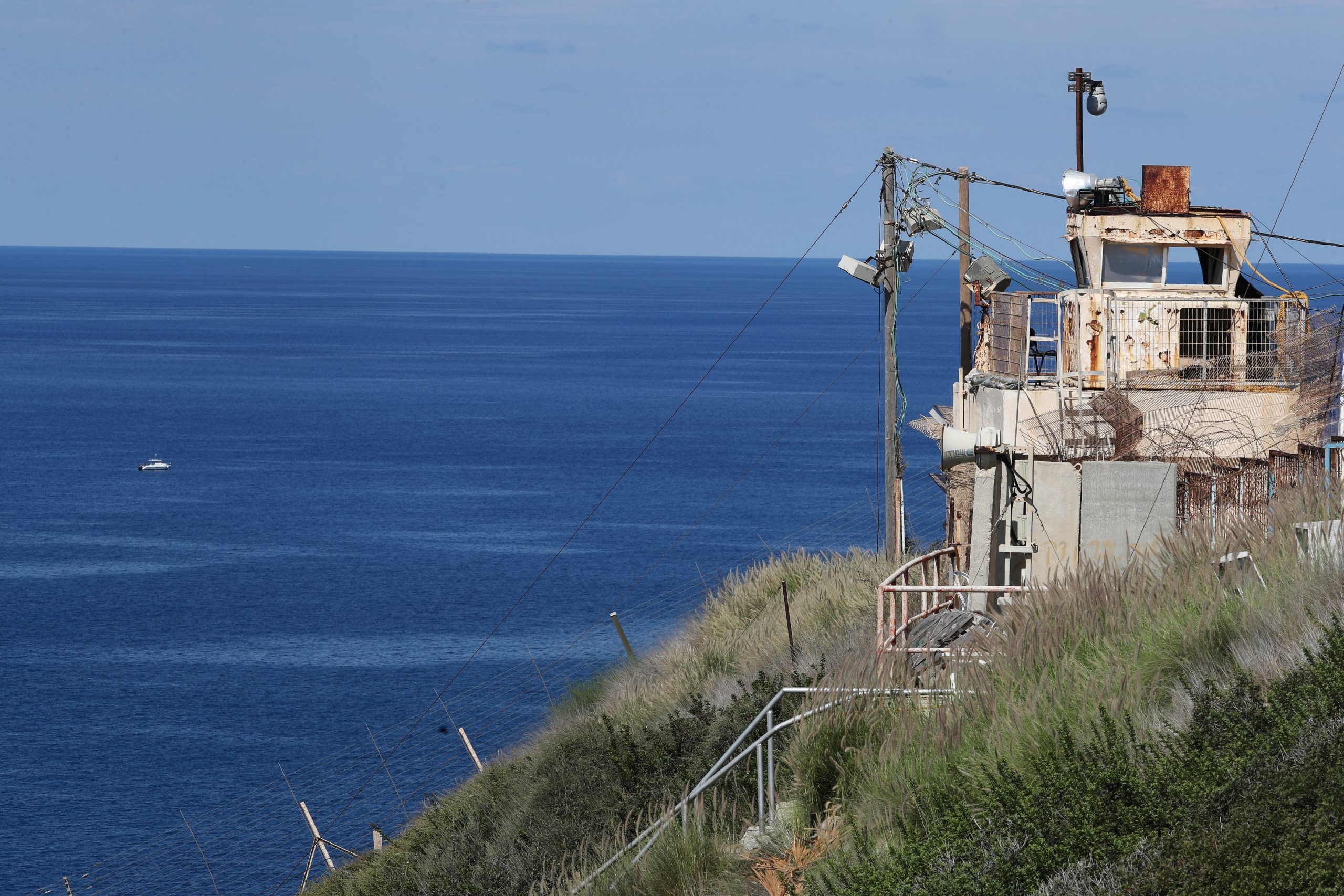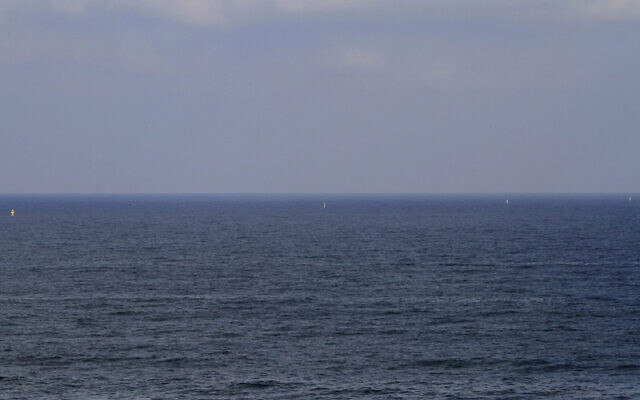After a decade of United States-led mediation, on October 14, delegations on behalf of Israel and Lebanon entered negotiations on the demarcation of their disputed maritime borderline.
Two of the most significant obstacles on the long path leading to the negotiations were mediation and Beirut’s demand to couple together maritime and land border disputes.
Israel demanded that the US mediate while Lebanon was insistent that the United Nations (UN) lead the effort.
As far as the land border is concerned, it seems that the agreement was worded with constructive ambiguity, expressing hope for future progress on this issue.
As it stands, there are thirteen disputed points between Israel and Lebanon along the international land border known as the “Blue Line,” which was mapped out by the UN—and to which Israel withdrew in 2000.
While the Blue Line continues eastwards to the Golan Heights, Lebanese militant group Hezbollah claims that the area of Sheba’a Farms, located on the western slopes of Mount Hermon, is conquered Lebanese land.
The land border dispute is somewhat connected to the maritime border dispute.
As opposed to Israel, kick-starting negotiations in October resonated strongly and caused a political storm in Lebanon.
On the other hand, proclamations made by Hezbollah’s leader, Hassan Nasrallah, and pro-Hezbollah news outlets, such asAl-Akhbar and Al-Mayadeen, were more noticeable.
Interestingly, against a background of calls in the Lebanese media to adopt tougher positions, the Lebanese delegation placed a demand at the table that almost doubled the disputed 860 km2 area that had been negotiated in the past decade.
The talks between Israel and Lebanon over the maritime border demonstrate that Hezbollah no longer vetoes such negotiations after preventing any breakthrough in the last decade.
As far as Hezbollah is concerned, negotiations that make a distinction between the maritime and land borders—including the question of Sheba’a Farms—weaken its image as the “defender of Lebanon” and undermine its already-eroded legitimacy to possess “the weapon of the resistance” outside state control.
Hezbollah was forced to swallow these bitter pills due to the special circumstances in Lebanon, first and foremost, its economic collapse.
Hezbollah’s need to compromise reflects the damage to its internal status within Lebanon and a degree of erosion in its overall deterrent capability vis-à-vis Israel.
Despite the concession it has made, Hezbollah is working to restrict the Lebanese negotiation team.
The big picture
It appears that most of the parties involved in the talks have an interest in their success.
Lebanon, much more than Israel, needs to resolve the dispute, as foreign companies currently hesitate to realize franchises or investments for exploration and drilling in the disputed area.
The extraction of the natural resources in the maritime border area will help Lebanon contend with the unprecedented crisis into which it has been plunged.
By doing so, it can limit its energy costs when faced with a collapsing electricity infrastructure, deal with the problem of air and environmental pollution, reduce its foreign debt—one of the highest in the world—and create jobs.
Israel’s potential profit could be mainly on a strategic level.
The negotiations—let alone an agreement—should reinforce stability with Lebanon and make it more difficult for Hezbollah to escalate the situation on the border.
The launching of talks is an important achievement for Washington, too.
The US has proven that it is still a significant player not only in the Gulf, but also in the Mediterranean, after its influence in Syria, Libya, and amongst the Palestinians has suffered setbacks in recent years.
Given these conditions, there is a chance that the negotiations could eventually make progress, even if they are expected to be long and arduous and, under certain circumstances, might become a hostage of the political instability in Lebanon.
Senior Israeli officials would do well to avoid making declarations regarding normalization with Lebanon or dwelling on the potential of any future Israeli-Lebanese cooperation, even if this entails profits for both sides (the conveyance of gas to Europe being an example).
It is also in Israel’s interest to maintain the trilateral track (IDF, LAF, and, UNIFIL) in parallel to the ongoing negotiations, and to try and use this framework to promote a solution to the disputed points along the Blue Line.
Links :
- TimesofIsrael : Israel and Lebanon hold ‘heated’ second round of maritime border talks
- BBC : Lebanon and Israel hold talks on disputed sea border despite state of war




JewishPress : A Surprise in the Maritime Border Negotiations Between Lebanon and Israel
ReplyDeletePeopleDispatch : Lebanon warns Israel against violations of its maritime borders
ReplyDeleteAmanar : All You Need to Know about Lebanon’s Lines in Maritime Border Talks
ReplyDeleteAlmanar : All You Need to Know about Lebanon’s Lines in Maritime Border Talks
ReplyDelete